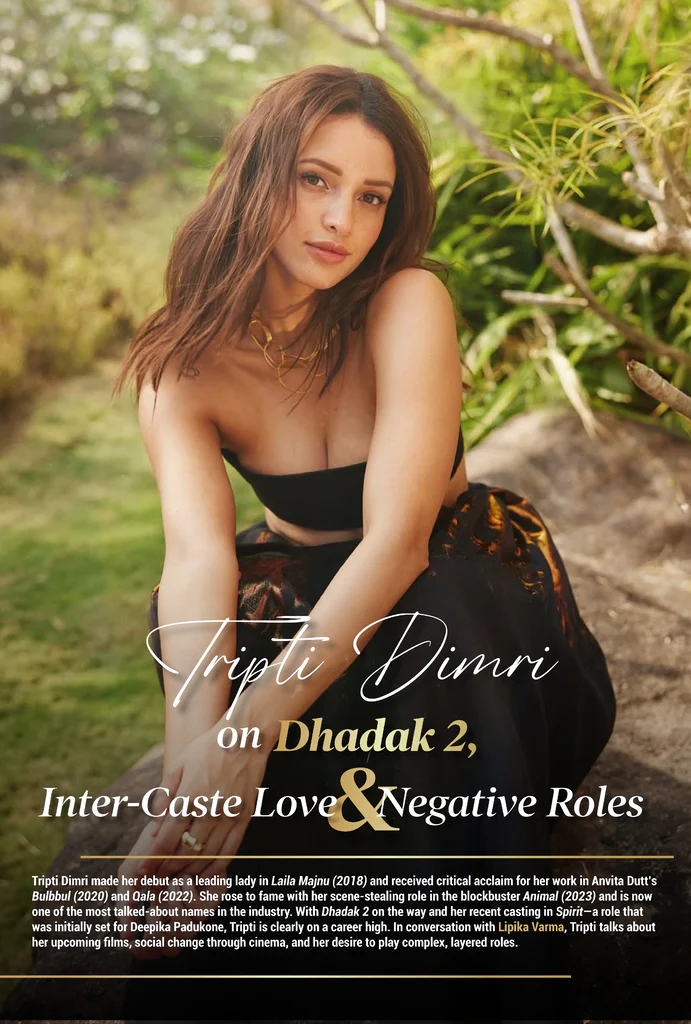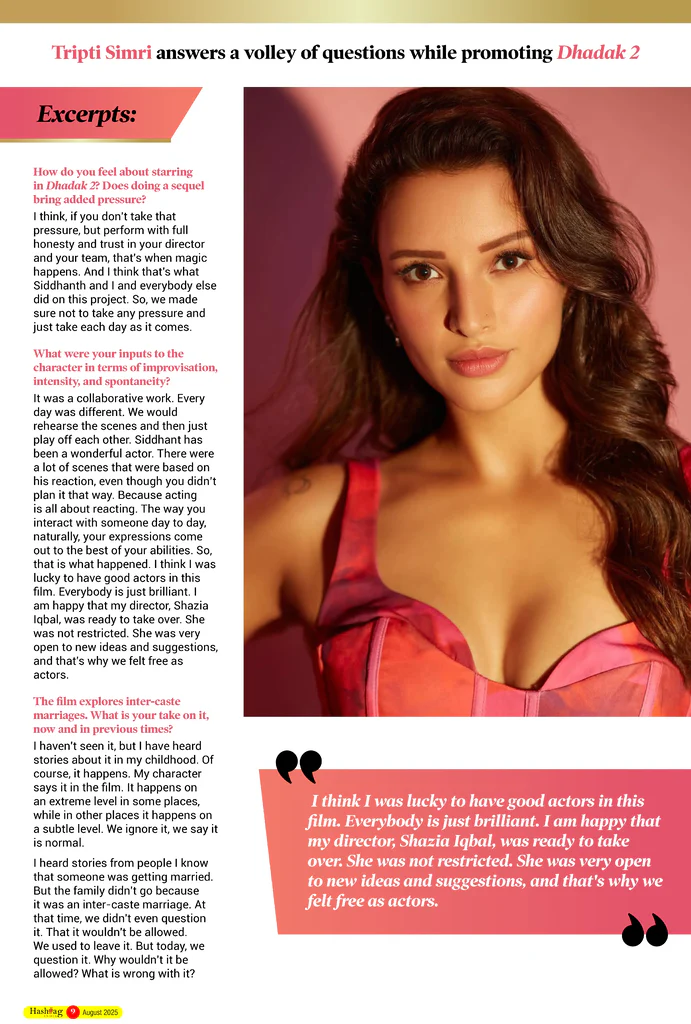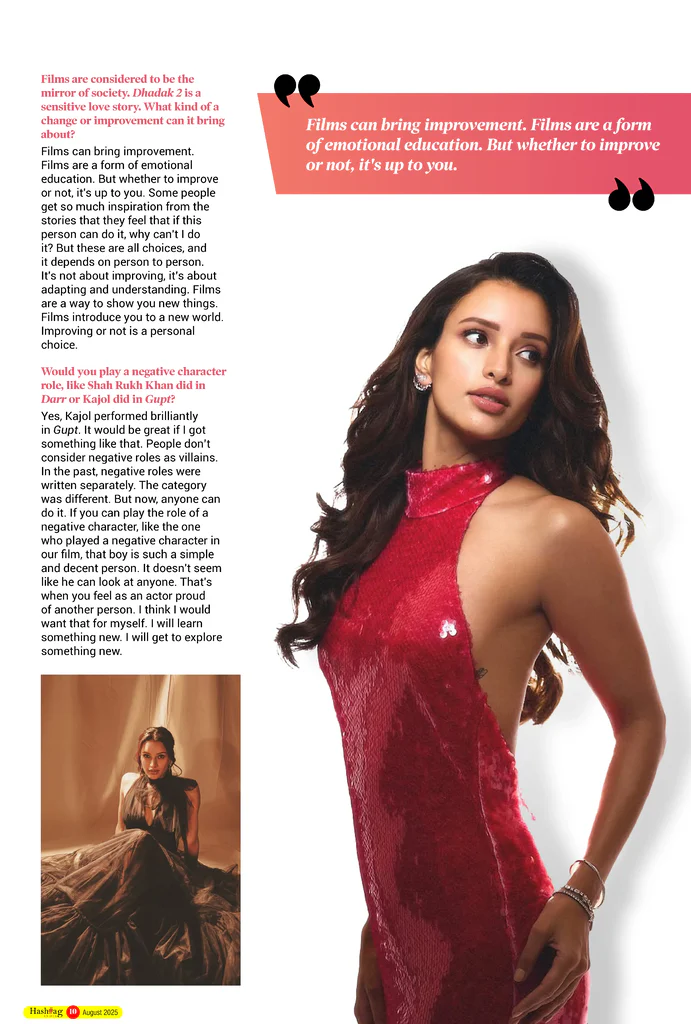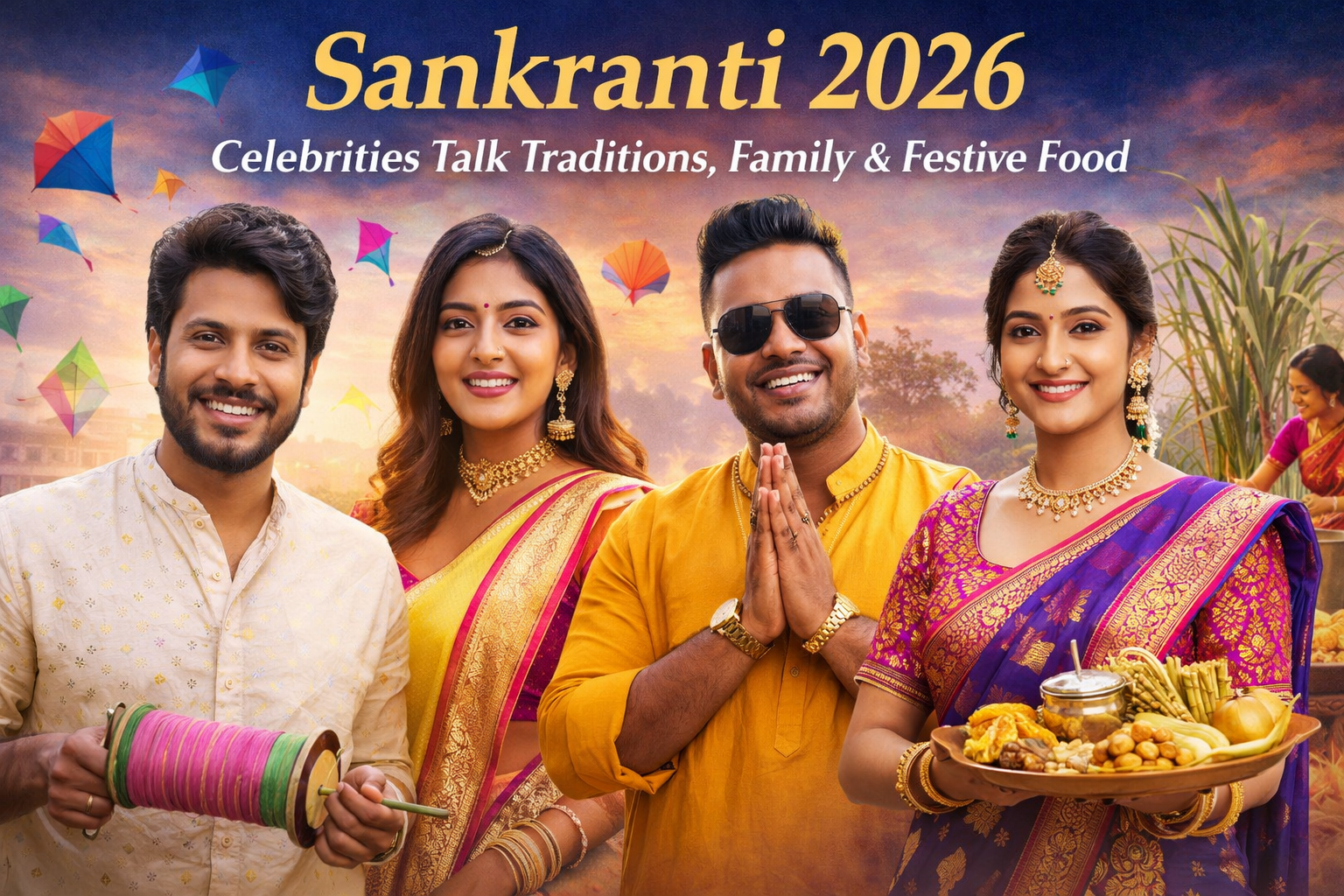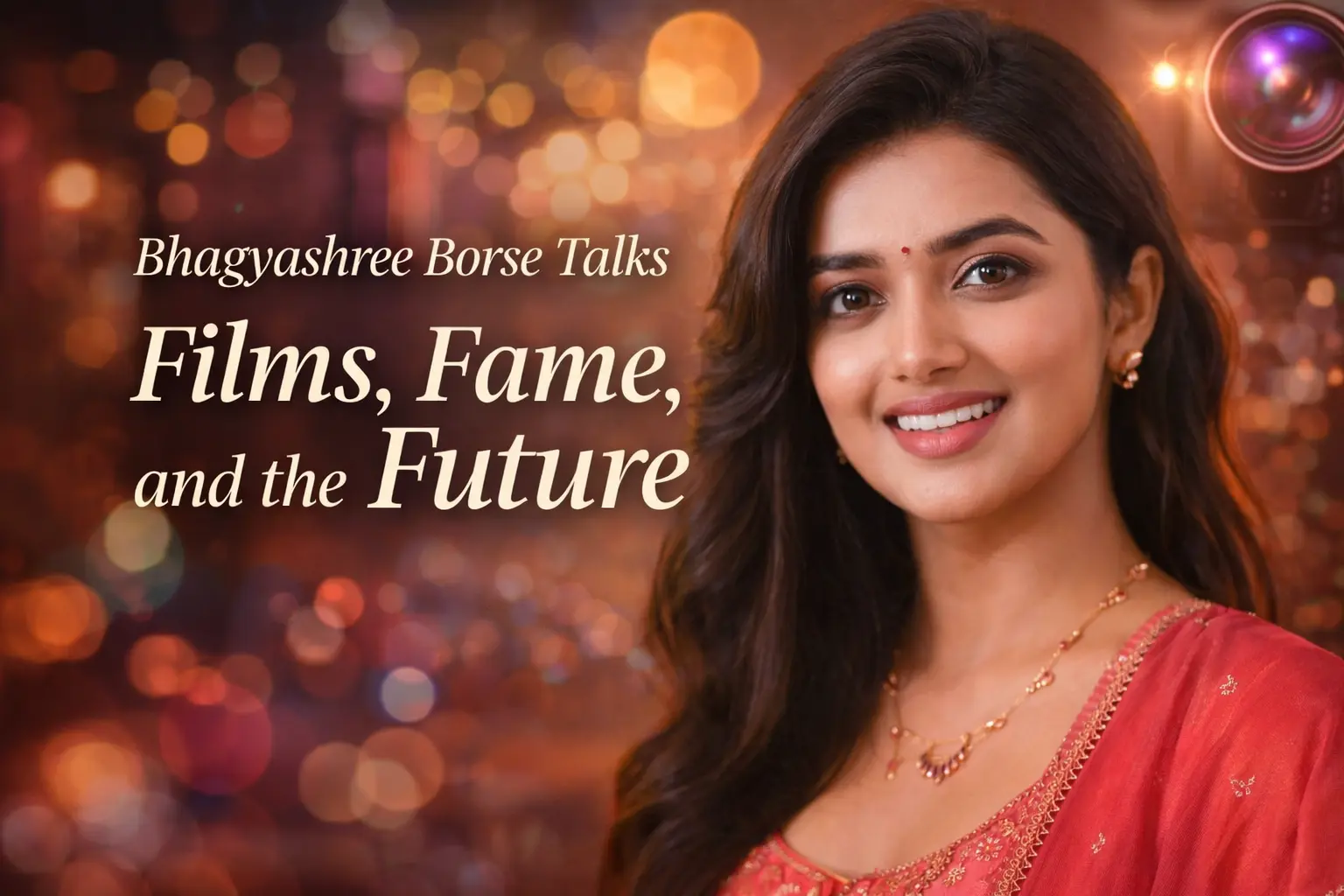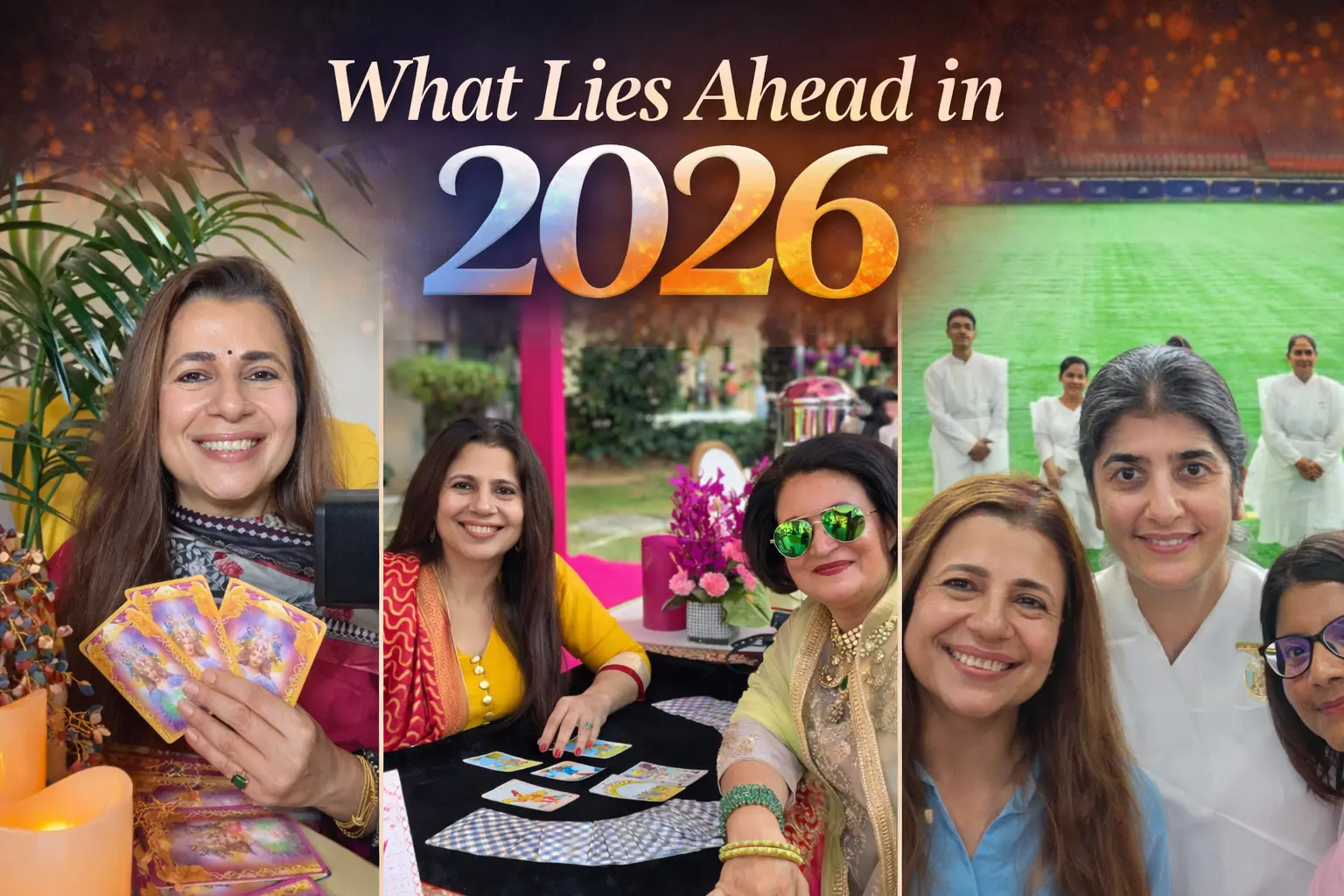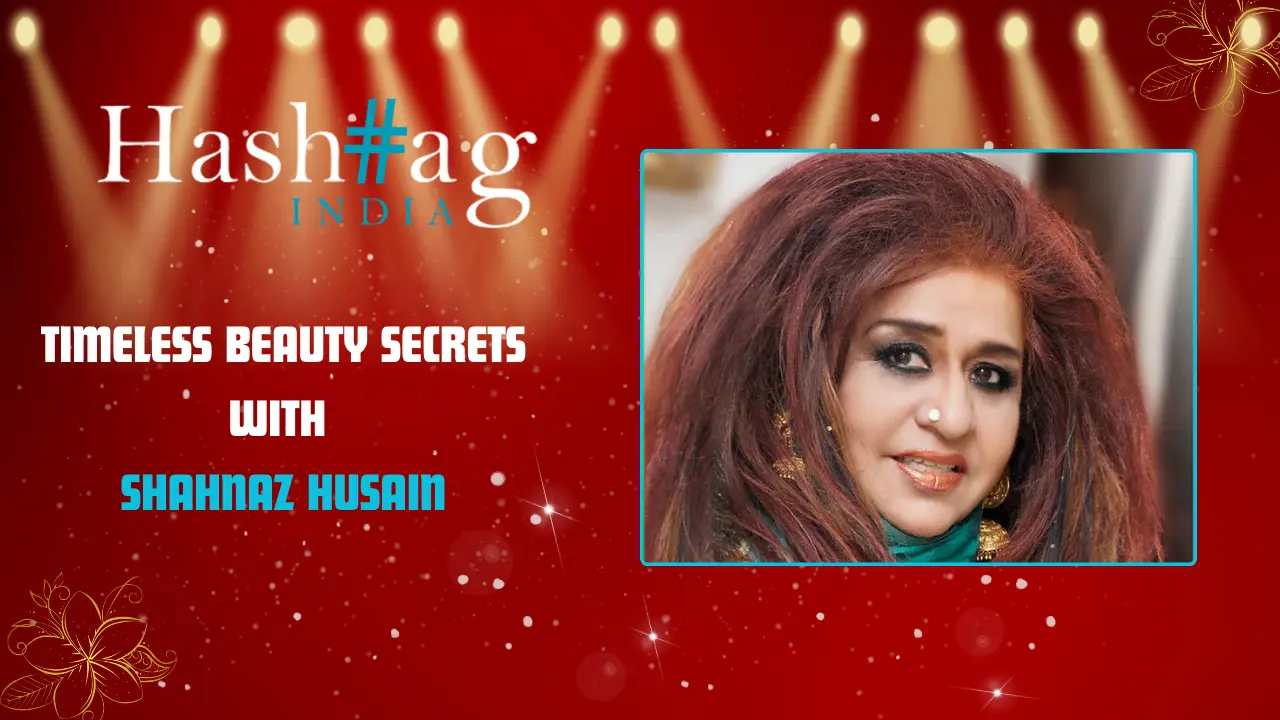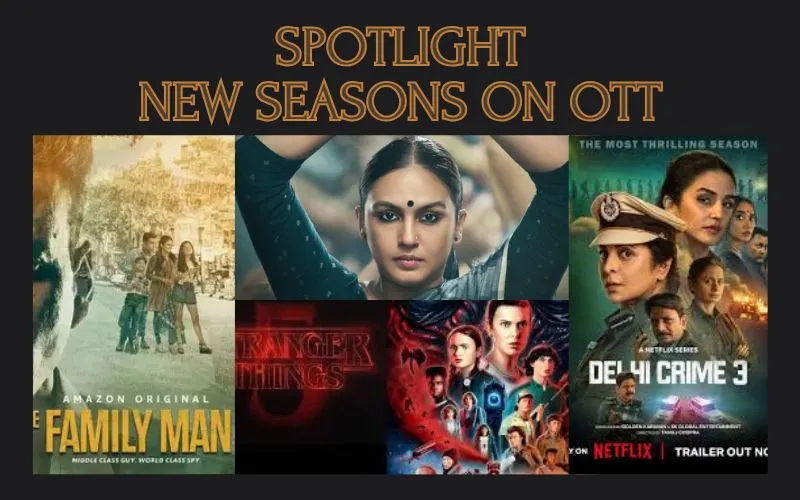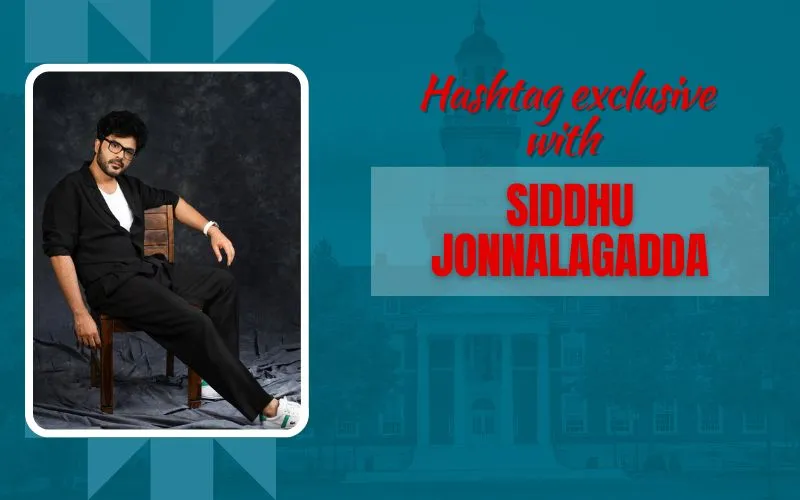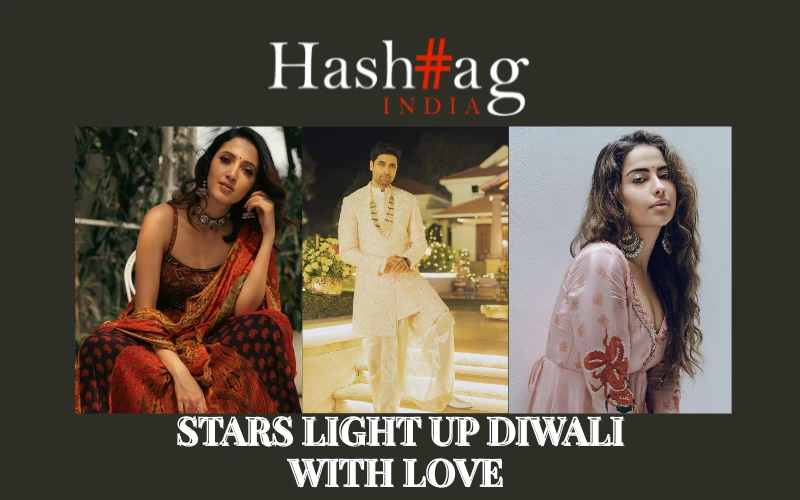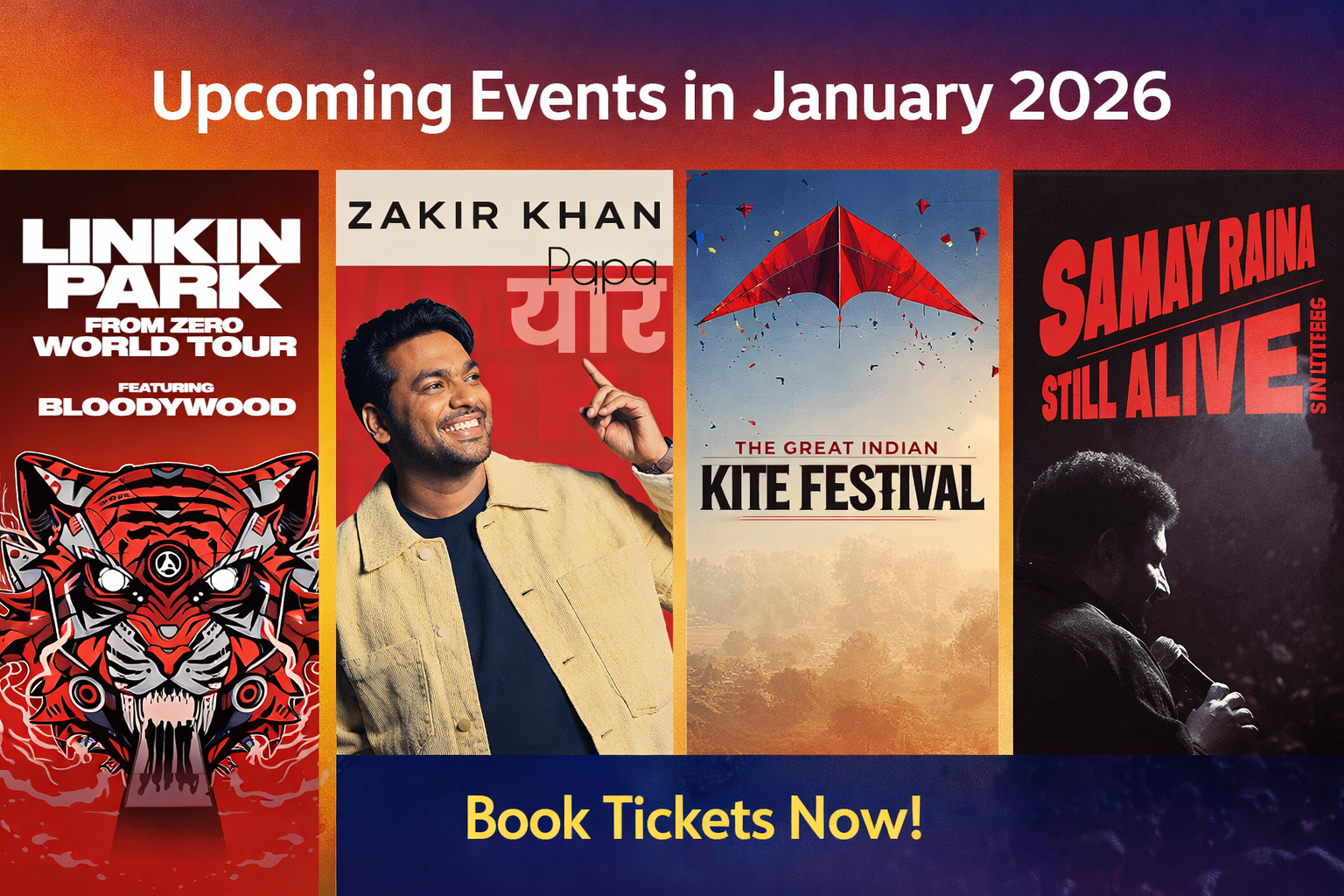Tripti Dimri made her debut as a leading lady in Laila Majnu (2018) and received critical acclaim for her work in Anvita Dutt’s Bulbbul (2020) and Qala (2022). She rose to fame with her scene-stealing role in the blockbuster Animal (2023) and is now one of the most talked-about names in the industry. With Dhadak 2 on the way and her recent casting in Spirit, a role that was initially set for Deepika Padukone, Tripti is clearly on a career high. In conversation with LIPIKA VARMA, Tripti talks about her upcoming films, social change through cinema, and her desire to play complex, layered roles.
Tripti Simri answers a volley of questions while promoting Dhadak 2.
Excerpts:
How do you feel about starring in Dhadak 2? Does doing a sequel bring added pressure?
I think, if you don’t take that pressure, but perform with full honesty and trust in your director and your team, that’s when magic happens. And I think that’s what Siddhanth and I and everybody else did on this project. So, we made sure not to take any pressure and just take each day as it comes.
What were your inputs to the character in terms of improvisation, intensity, and spontaneity?
It was a collaborative work. Every day was different. We would rehearse the scenes and then just play off each other. Siddhant has been a wonderful actor. There were a lot of scenes that were based on his reaction, even though you didn’t plan it that way. Because acting is all about reacting. The way you interact with someone day to day, naturally, your expressions come out to the best of your abilities. So, that is what happened. I think I was lucky to have good actors in this film. Everybody is just brilliant. I am happy that my director, Shazia Iqbal, was ready to take over. She was not restricted. She was very open to new ideas and suggestions, and that’s why we felt free as actors.
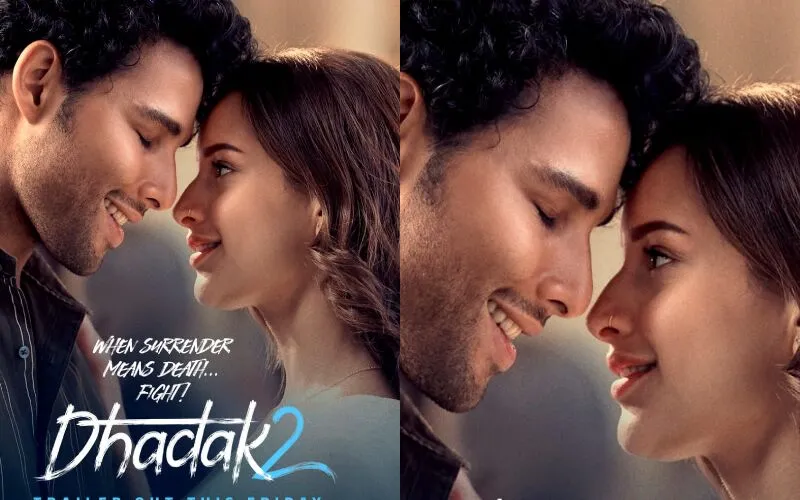
The film explores inter-caste marriages. What is your take on it, now and in previous times?
I haven’t seen it, but I have heard stories about it in my childhood. Of course, it happens. My character says it in the film. It happens on an extreme level in some places, while in other places it happens on a subtle level. We ignore it, we say it is normal.
I heard stories from people I know that someone was getting married. But the family didn’t go because it was an inter-caste marriage. At that time, we didn’t even question it. That it wouldn’t be allowed. We used to leave it. But today, we question it. Why wouldn’t it be allowed? What is wrong with it?
Films are considered to be the mirror of society. Dhadak 2 is a sensitive love story. What kind of a change or improvement can it bring about?
Films can bring improvement. Films are a form of emotional education. But whether to improve or not, it’s up to you. Some people get so much inspiration from the stories that they feel that if this person can do it, why can’t I do it? But these are all choices, and it depends on person to person. It’s not about improving, it’s about adapting and understanding. Films are a way to show you new things. Films introduce you to a new world. Improving or not is a personal choice.
Would you play a negative character role, like Shah Rukh Khan did in Darr or Kajol did in Gupt?
Yes, Kajol performed brilliantly in Gupt. It would be great if I got something like that. People don’t consider negative roles as villains. In the past, negative roles were written separately. The category was different. But now, anyone can do it. If you can play the role of a negative character, like the one who played a negative character in our film, that boy is such a simple and decent person. It doesn’t seem like he can look at anyone. That’s when you feel as an actor proud of another person. I think I would want that for myself. I will learn something new. I will get to explore something new.


